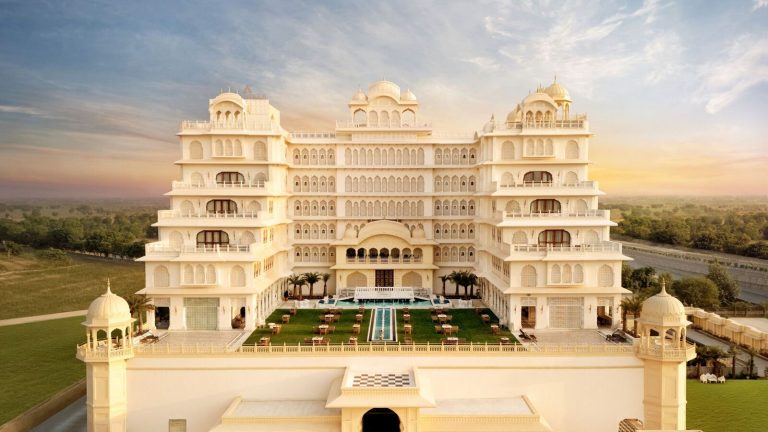Thailand’s Dusit and Minor Hotels, UAE’s Kerzner, Maldives’ Atmosphere Hotels & Resorts, and Hong Kong’s Mandarin Oriental are scouting for locations in India, while larger chains such as Accor, IHG and Hilton plan to debut brands like Handwritten Collection, Vignette Collection, Hampton, and Signia in the country.
Minor Hotels plans to expand its Anantara, Avani, NH Hotels and NH Collection in India and will add 50 hotels in the country by 2035. Dusit has already soft-launched its Dusit D2Fagu hotel in Shimla.
New-age brands attract younger travelers
“New-age brands built around experience-driven stays are gaining traction among Millennials and Gen Z travellers, who are prioritizing unique and personalized offerings over conventional hospitality,” said Achin Khanna, managing partner, strategic advisory at Hotelivate, a hospitality company.
Also Read | ‘India is a $100 billion travel opportunity’
“At the same time, developers are also recognizing the value of investing in distinctive hotel concepts that break away from traditional models, allowing them to tap into this growing demand,” he said.
Brands that were earlier less active but had a small presence are starting to grow in the country, Khanna said, adding UAE-based Kerzner is likely to bring its ‘Rare Find’ brand to India, while French major Accor is expected to bring its Handwritten Collection brand, while IHG will focus on bringing VOCO & The Vignette Collection which it announced in 2021.
Surging room supply and strategic expansions
The number of hotel rooms that stood at around 180,000 in FY24 is expected to jump to around 300,000 by 2030, according to Hotelivate. With agreements being inked across cities big and small, India is emerging as a key battleground for global hospitality heavyweights.
Also Read | What should investors expect from the ITC Hotels demerger?
According to Atmosphere Hotels & Resorts, which is adding 17 properties in India, opportunities now are much more than what it used to be about a decade ago. Its upcoming developments include those in Kolkata, Bengaluru, Goa, Guwahati, Jaipur, Gurugram, and Darjeeling.
Cyrus Madan, senior vice-president, business development said that while Atmosphere is a relatively new brand in India, its expertise in luxury resorts in the Maldives gives it a strong foundation for its Indian expansion. Atmosphere runs brands like The Ozen Collection.
“People are taking many more breaks than before and so India’s becoming a very compelling story. While we are a new brand here, we are a 10-year-old specialist resort brand in the Maldives known for luxury. The time is right for India now,” he said. The company launched its first Indian property in Bhopal, and has a pipeline of 17 properties, with three scheduled to open within this calendar year.
“We are experiencing strong momentum, particularly in the luxury resort segment and lifestyle city hotels, which will remain our key focus,” Madan added.
The renewed interest comes as operators look to capitalize on shifting demand, with developers betting on a broader mix of offerings beyond traditional hotel formats.
Luxury players eye India’s evolving hospitality landscape
Mandarin Oriental Hotels, a Hong Kong-based luxury hotel chain, is exploring opportunities to enter India, said Ishaan Koul, director at Delhi-based Naaz Hotel Consultants, adding global hospitality firms are recognising the value of Indian travellers as brand awareness grows. “Indian consumers are now familiar with a wide range of hotel brands, and the wedding segment remains a strong driver of business,” he said.
When contacted, Mandarin’s representatives said they are continually reviewing opportunities to expand their portfolio in “new and exciting destinations” around the world, including in India.
Last year, Mint had reported that Kempinski Hotels, which exited India a decade earlier, was keen to re-enter the country. “If we had a good destination in India, it would be great for us as the Indian traveller has become very important for hospitality companies. We are still fondly remembered when we were in India about a decade ago with The Leela,” Amanda Elder, chief commercial officer of Kempinski had then said.
“The key question now is whether the market is large enough to sustain both mainstream hotel brands and their lifestyle-focused counterparts. But given the diversity of consumer preferences in the hospitality sector, we believe there is ample space for both to coexist and flourish,” Khanna of Hotelivate said.


